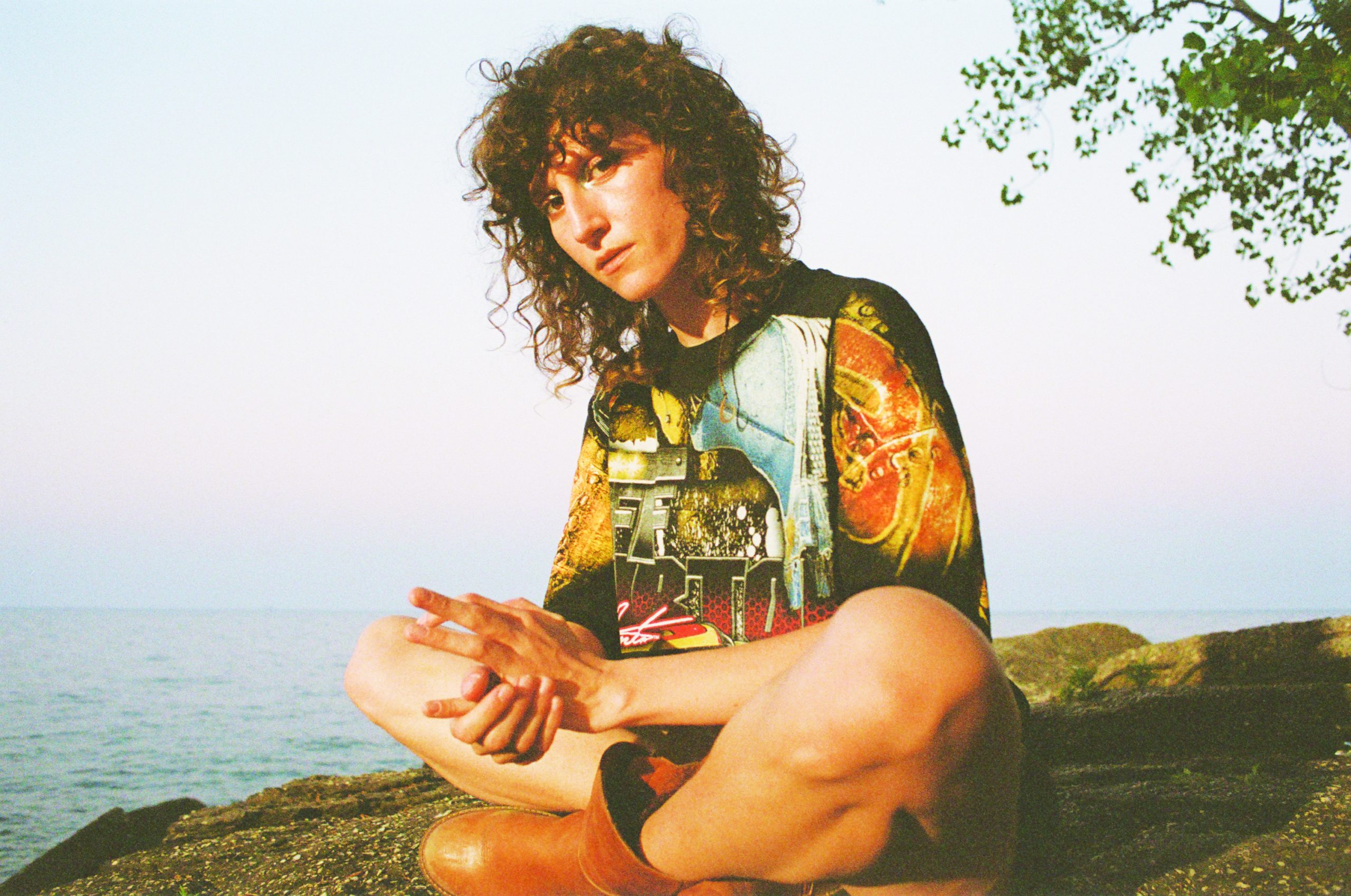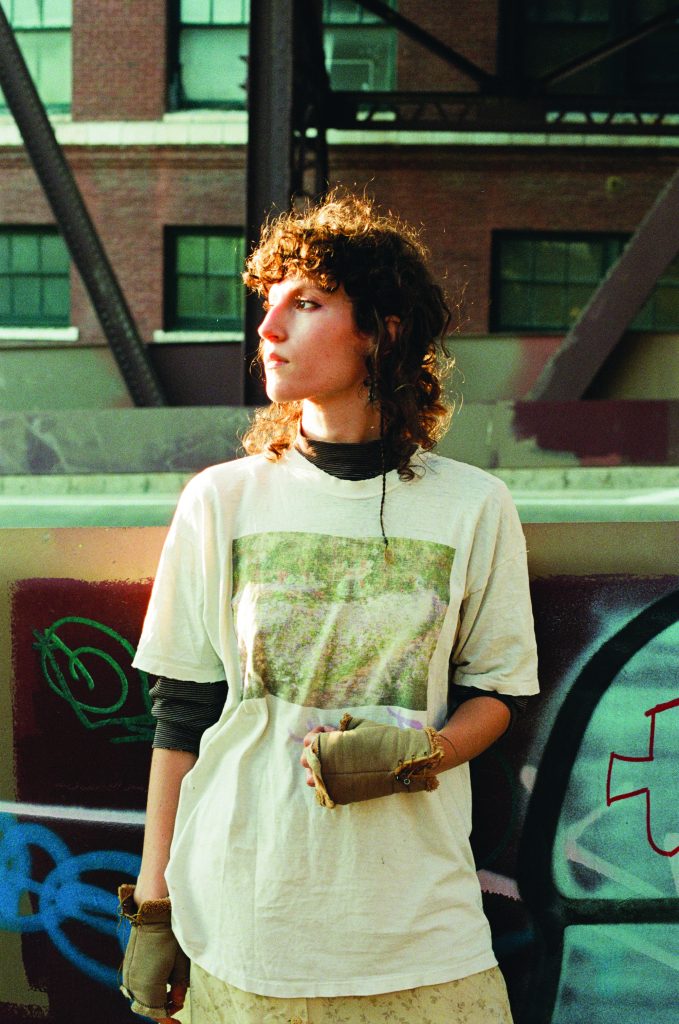
Ella Williams, who makes music under the name Squirrel Flower, has always had a dichotomy to her music. Many of her songs could be described as indie folk, with lots of acoustic instrumentation but with a moody, atmospheric edge and some arrangement twists that take songs away from traditional structures. Then there’s also a side to her that likes to plug in the electric guitars and rock it up.
“I think part of it is not wanting to be boxed in by any sort of genre expectations,” Williams says. “I don’t make different types of music just to push out of a box. I make it because it’s what feels true to me. I think being able to explore different sides of music, different realms and different sounds is what music is all about.
“Having people who only make, like, one very distinctive sounding type of sound, I think it’s sort of antithetical to the purpose of music. It’s important to not be restrictive.”

New direction
The dichotomy has perhaps been most pronounced on Williams’ two most recent albums as Squirrel Flower, 2021’s Planet (i) and the recently released Tomorrow’s Fire.
With the former album, Williams, who plays guitar and sings, created an introspective and layered folk-centric set of songs that explored space and restraint. By contrast, Tomorrow’s Fire is a rock record, where the songs feature plenty of gritty electric guitars.
Williams went into the Planet (i) project with no concept in mind and let the songwriting naturally dictate the kind of album she made. With Tomorrow’s Fire, she had a direction in mind — but it wasn’t the plugged in, electric guitar centric sound she ended up crafting.
“Actually, I went in with the intention of sort of the opposite,” Williams says. “I thought I was going to make an experimental, kind of ambient folk album. That’s what I had in my mind.”
The type of songs Williams started writing turned Tomorrow’s Fire on its ear.
“I wrote all of these songs that sounded like classic rock songs,” she says, “and I felt like I needed to treat it as such and lean into the rock elements of it.”
Tomorrow’s Fire is very much a plugged-in rock album. Songs like “Finally Rain,” “Full Time Job” and “Intheskatepark” feature walls of electric guitar that cascade around Williams’ melodic, frequently layered vocals. “When A Plant Is Dying” builds to a raucous enough crescendo to recall Neil Young during his Rust Never Sleeps/Freedom album eras. Slower songs like “Almost Pulled Away” and “Canyon” retain the guitar-drenched sound but evoke the spaciousness and atmosphere of Williams’ more acoustic-oriented material.

‘I needed to be grittier’
Her surroundings have also influenced Williams’ sound. A native of the Boston area, she grew up in a musical family that included a father who is a professional bassist and siblings who play instruments. “We jam together every time we’re together pretty much,” she says.
Williams began making music as Squirrel Flower in 2014, after she started attending Grinnell College in Iowa. There, she found an active music scene and a different pace to life. Williams said the move from the big city to the rural Midwest very much informed the music on her early EPs, 2015’s Early Winter Songs From America and 2016’s Contact Sports.
“The landscape and the pace of life there really found its way into my music,” she says. “[I] sort of discovered this way that I could recreate my environment through sound and not just songwriting — not just narrative, but the sound itself. Then as the content matter of my songs changed — and my second EP that I made, it was more about the challenges of interpersonal relationships — it felt more like I needed to be grittier, I needed to be louder, because the content of the songs was more intense.”
By the same token, Tomorrow’s Fire was informed by Williams’ move to Chicago a couple of years ago and her discovery of the Indiana Dunes, located on the Lake Michigan shores of Indiana.
“I think living in Chicago and being really around the industrial Midwest, like being in the rust belt or in close proximity to it, it really did influence the songs that went into this record,” she says. “I think my experience at the Dunes and experiencing this area that has this gorgeous protected natural area that’s literally right next door to steel factories, oil refineries, nuclear power plants, that sort of dichotomy very much encapsulates this country in my mind and definitely encapsulates the uniqueness of the Midwest. I don’t know if that really exactly ended up in the narratives of my songs, but it definitely influenced the sound in terms of trying to capture this more kind of industrial-like grinding sound next to organic spacious qualities.”
Tomorrow’s Fire also represents a step forward for Williams in showing her studio chops. After using outside producers for her previous albums I Was Born Swimming and Planet (i), she self-produced the new album, with Alex Farrar handling the engineering.
“I felt such a strong urge to be at the helm of it in every way,” she says. “With this record, I had a new confidence from it being my third time … making a full studio record. I got to the point where I fully had the knowledge and the skills and the ability and the vision to make it happen, so I wanted to try my hand at it. I think it went very well. The record turned out pretty much exactly how I thought it would.”
The songs from Tomorrow’s Fire figure to bring a further jolt of energy to the shows Williams is playing on tour as she fronts a band with a second guitarist, bassist and drummer. The song selections won’t be static from show to show.
“I really like to switch it up a bit from night to night,” Williams says. “If you don’t do that, you get very locked in, and it feels like you’re just kind of going through the motions, and that’s never a good thing to feel.
“I like to keep it dynamic.”
ON THE BILL: Squirrel Flower with Goon and Lu Lagoon. 8 p.m. Tuesday, Jan. 23, Larimer Lounge, 2721 Larimer St., Denver. $18
